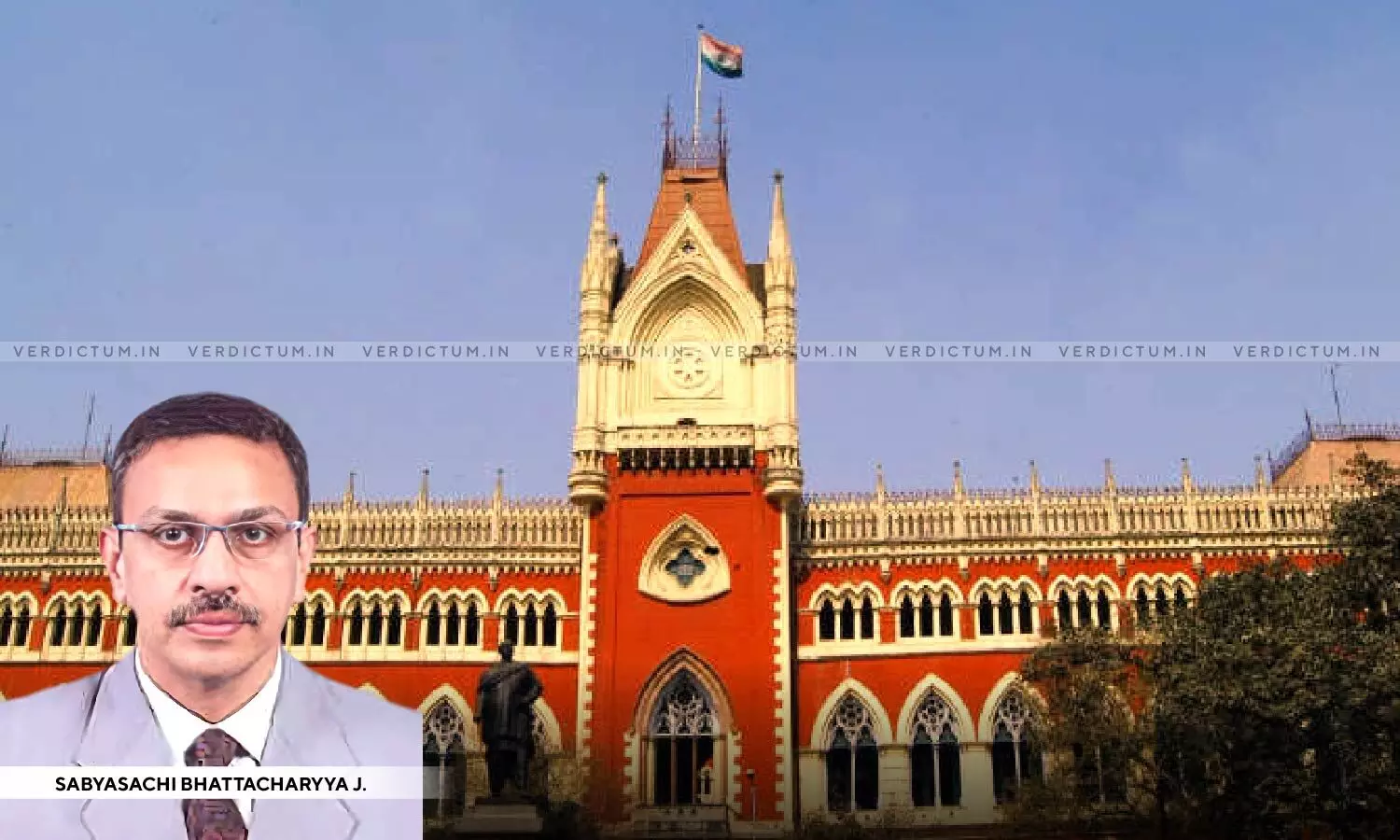
No Fault In Empowering Local Women In Rural Areas By Giving Employment Opportunity: Calcutta HC Dismisses Petition Raised After Inordinate Delay Of 13 Years
 |
|The Calcutta High Court recently dismissed a petition challenging a memorandum issued by the Health Department of the West Bengal government which restricted federations or clusters of Self-Help Groups (SHG) from supplying food in hospitals in the state’s rural sector having up to 50 beds, saying there was no scope of any interference in the present writ petition.
The Single Judge Bench of Justice Sabyasachi Bhattacharya observed that “Empowerment of local women in rural areas by providing employment opportunities for them cannot be faulted from any perspective whatsoever. Certain supervision of the State cannot be said to be a vitiating factor in that regard, since otherwise, the entire allotment would be unregulated, which might also afford scope for corruption, nepotism, and opportunism”.
The Bench, therefore, held that the State was justified in arguing that the challenge had been preferred after an inordinate delay of 13 years.
“Even if the petitioner sought to participate in the tender at the present juncture, such fact, by itself, could not furnish a cause of action to the petitioner for challenging a Memorandum of 16-06-2010 in 2023. If a premium is given to such belated challenges, anybody and everybody seeking to take benefit of such challenge would be coming up with applications under Article 226 of the Constitution of India after prolonged periods of delay as per their whims and fancies to suit their limited individual purposes, which would tantamount to gross abuse of the provisions of judicial review”, added the Bench.
Advocate Satrajit Sinha Roy appeared for the Petitioner, whereas Advocate Amal Kumar Sen appeared for the Respondent.
The facts of the case are that it was alleged that the State Government had drastically curtailed the wider participation of members of the general community and that although the purported object behind the decision was the empowerment of women, participation from other women apart from the members of the SHGs had been entirely precluded. The plinth of the challenge of the petitioner was that, by virtue of the restrictions introduced, free competition had been curtailed in respect of rural hospitals, insofar as the supply of cooked diet was concerned. It was stated that the cooked diet to be supplied under the impugned Clause was confined to hospitals in the rural sector having beds only up to 50 and, as such, it could not be said that such work would involve the expertise of such level which could not be achieved by SHGs run by women.
After considering the submissions, the Bench noted that Clause 3 of the Memorandum provided that the said provision was for the empowerment of women through the promotion of the SHG movement which, per se, could not be faulted, since the same was to achieve a benevolent public purpose which aligned with the Constitutional scheme.
The Bench also stated that the process of giving such appointments would be ‘selection’ by the CMOH, on the specific recommendation of the Project Director, District Rural Development Cell (DRDC).
The High Court observed that it could not be denied that the CMOH was a sufficiently qualified medical officer to decide on the eligibility of a particular SHG for appointment as a supplier of cooked diet to hospitals since a sufficient safeguard to the functions of the CMOH had also been implanted in the policy by subjecting the decision of the CMOH to the specific recommendation of the Project Director, DRDC, which functioned for the specific purpose of rural development in the State.
It could not be said that the object sought to be achieved by the impugned Memo, that was, empowerment of women through the promotion of SHGs in rural areas, was ex facie arbitrary or vitiated in any manner whatsoever, added the Court.
The High Court also added that “A further check is that such groups will have to supply cooked diet only in the specific area where they otherwise operate or are situated, to avoid nepotism and favoritism in making such appointments. Sub-clause (b) of Clause 3 stipulates that such assignment may be made to a cluster working in a Gram Panchayat area concerning all the health facilities within that Gram Panchayat and/or within its close vicinity and should preferably be of “A” category; under exceptional circumstances, “B” category clusters would also be eligible for upgradation to be considered for such engagement.”
While observing that in bold letters, at the end of the impugned Clause it was provided that no tender process was required for the engagement of such federation or cluster and the Project Director would recommend only one federation or cluster for specific rural hospital and/or health centers in complete satisfaction of the above conditions, the Bench concluded that “mere existence of such clause, in the absence of any other vitiating circumstance, could not render the entire scheme bad in law. Apart from the factors as indicated above, which comprised of sufficient safeguards to prevent false play and favoritism, it had also been ensured that the federation or cluster engaged would be paid at the maximum admissible rate.”
Cause Title: United Order and Supply Co-operative Society Limited v. The State of West Bengal and Ors.
Click here to read/download the Judgment